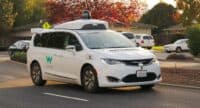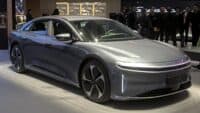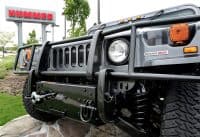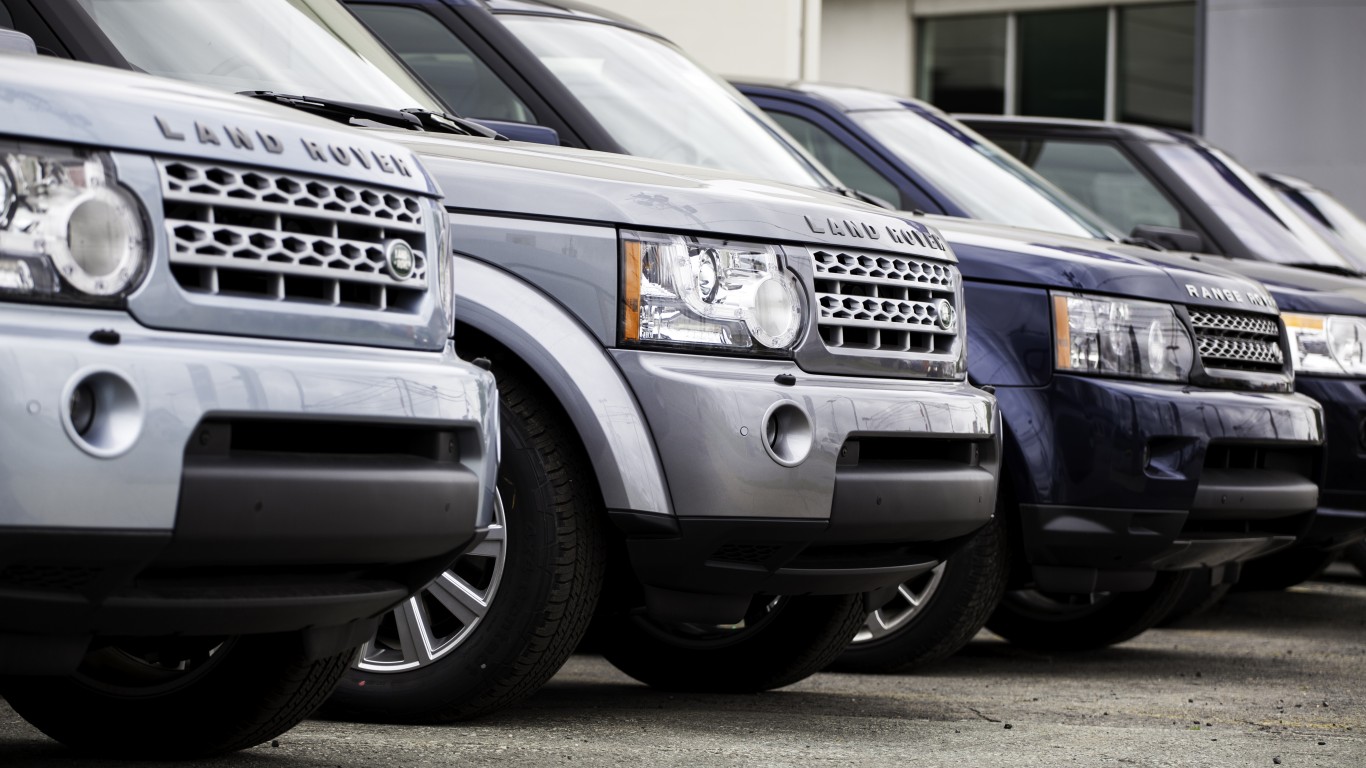The remarkable increase in new car sales will continue next year, according to research firm Kelly Blue Book (KBB). Demand for new vehicles should abate though, because more than 30 million new cars have been sold in the past two years. But demand persists despite the extraordinary good fortunes of the industry.
KBB (Kelly Blue Book) reports:
[N]ew-car sales in 2015 will reach 16.9 million (up 2.5 percent). However, it will be the slowest growth in new-car sales since 2009, when the industry declined 21.2 percent. In 2010, industry new-car sales were up 11.3 percent.
The growth may slow, but the profits of the major car companies will remain strong. Most of them cut capacity so much during the downturn that their ability to maintain strong margins has strengthened. The weakening of the auto worker unions has contributed as well.
Some of the reasons for the forecast, however, are not good for the industry as a whole. According to KBB:
Incentives will rise to the highest levels since 2004 ($2,942), averaging nearly $3,000 per unit being sold. As sales slow in 2015, automakers will need to stay disciplined and not “pay for the sale.”
Incentives have deeply eroded car company profitability in the past, particularly in segments such as pickups and lower priced sedans. For example, as Ford Motor Co. (NYSE: F) introduces its new F-Series pickup, which will be 700 pounds lighter due to the use of aluminum, some buyers may reject the new version, even if it is the best-selling vehicle in the United States. That would give rivals the Chevy Silverado, from General Motors Co. (NYSE: GM), and the Ram, from Fiat Chrysler Automobiles N.V. (NASDAQ: FCAU), a chance to gain market share, as each did throughout 2014. However, Chevy offered deep discounts on the Silverado to get that share.
ALSO READ: Why Ford Sales Struggles Got Worse in December
KBB experts also commented:
Leasing will continue to rise to near-record levels of 26 percent, up from approximately 25 percent in 2014.
There is evidence of growing defaults on auto loans, especially those that are considered subprime. If this plagues the industry further, the availability of cars loans could slip.
Some of the most successful brands of last year will continue to have success, and some of the failures will continue to falter. For example:
Jeep will continue to improve in market share as gas prices remain low, especially with the introduction of the Jeep Renegade and continued success of the Jeep Cherokee.
Also:
Volkswagen brand market share could drop to 2 percent as new products are still in development. This is down from a high of 3 percent in 2012.
VW’s problems have dragged on for years without solution.
As an aside, Tesla Motors Inc.’s (NASDAQ: TSLA) success will continue to wane, taking the shine off one of the great successes in the industry in recent memory:
Tesla U.S. sales growth will continue to slow, with slight improvement in international locations, especially in China.
The fact that Jeep should do so well and Tesla so poorly is a signal that people like the same cars that they have liked for years. Novelty has its limits.
ALSO READ: Can BMW Sell $135,000 Electric Car?
Are You Ahead, or Behind on Retirement? (sponsor)
If you’re one of the over 4 Million Americans set to retire this year, you may want to pay attention.
Finding a financial advisor who puts your interest first can be the difference between a rich retirement and barely getting by, and today it’s easier than ever. SmartAsset’s free tool matches you with up to three fiduciary financial advisors that serve your area in minutes. Each advisor has been carefully vetted, and must act in your best interests. Start your search now.
Don’t waste another minute; get started right here and help your retirement dreams become a retirement reality.
Thank you for reading! Have some feedback for us?
Contact the 24/7 Wall St. editorial team.




